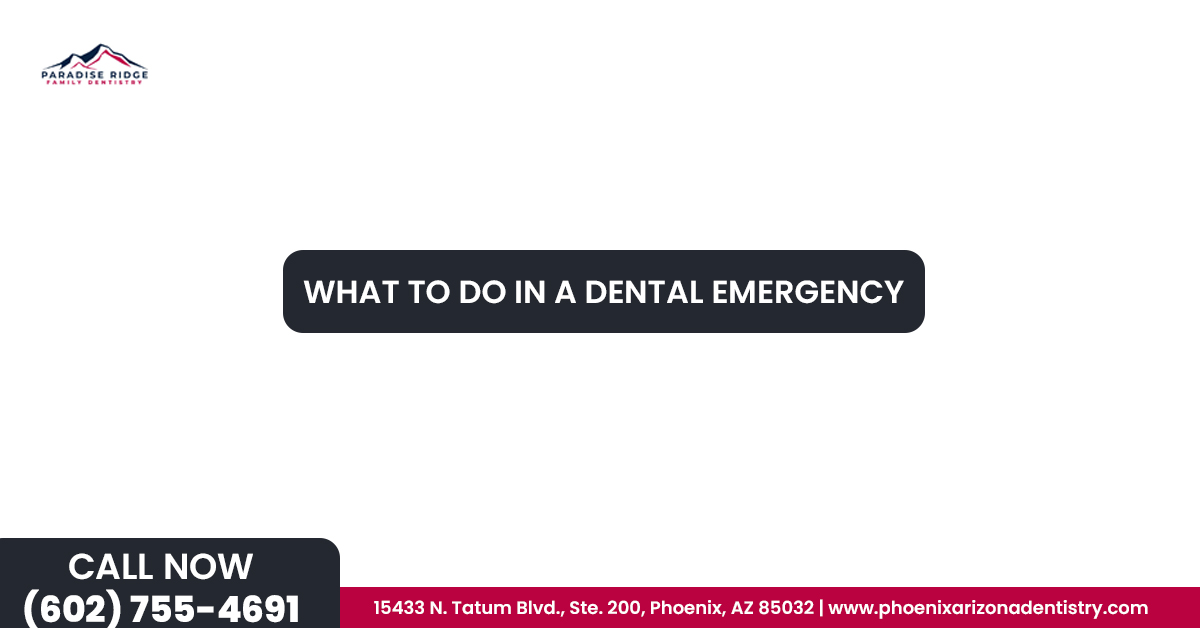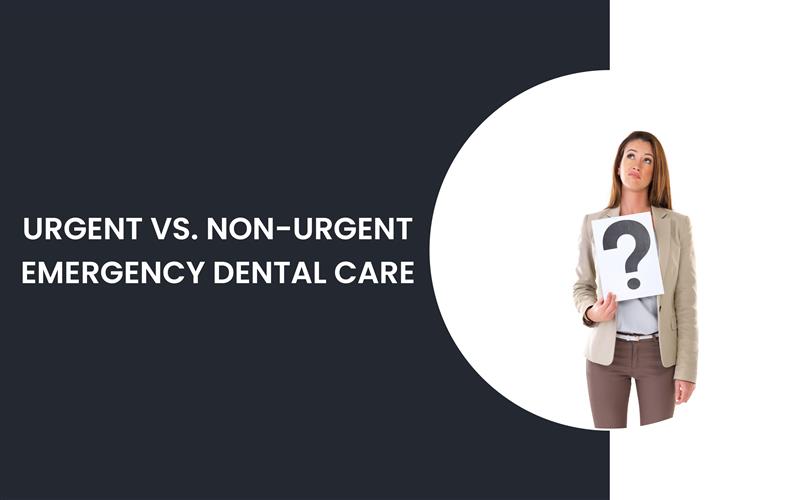A dental emergency can come unexpectedly, bringing pain, discomfort, and anxiety. It is important to know when to get immediate dental care to avoid worsening the situation and optimizing a quick recovery. We’ll examine what is considered to be a dental emergency and how to handle it.
Table of Contents
What is Considered A Dental Emergency?
A dental emergency is a condition that needs immediate action to cure significant damage to the oral tissues, avoid infection, or relieve discomfort. Usually, it involves tooth or gum discomfort, damage, or bleeding.
Dental Emergency Care Description
An oral emergency is dental care that can be given immediately to treat pain, trauma or injury. It is important to receive this care to avoid more complications and to maintain your general well-being.
Differentiate Between Urgent vs. Non-Urgent Dental Issues
You can save time and stress by distinguishing between urgent and non-urgent dental issues. Severe pain, major bleeding, or trauma are urgent issues, whereas minimally painful or cosmetic issues can be non-urgent.
Urgent Dental Emergency Example
- Severe Toothache: – Pain that impedes on your daily life or persists for weeks even after taking over-the-counter painkillers.
- Knocked-out Tooth: – The tooth can be saved with immediate attention.
- Severe Bleeding: – Bleeding that continues despite placing pressure on the area.
- Abscess: – A sharp, tender, and swollen area in the mouth that could be a sign of a serious infection.
A Non-urgent Dental Emergency Example
- Minor Toothache: – Pain that can be managed with pain relievers.
- Lost Filling or Crown: – It does need attention, but it doesn’t need emergency attention.
- Chipped Tooth: A chipped tooth is usually painless, unless a large chunk of your tooth breaks off according to Reid.
- Food Stuck Teeth: – It isn’t considered an emergency unless it’s too painful or uncomfortable to endure.

What To Do In A Dental Emergency?
- Stay Calm: – This can help you think clearly.
- Speak with Your Dentist: – For guidance and instructions, give your dentist a call as soon as the pain arises.
- Manage Pain and Discomfort: – For swelling, take over-the-counter pain relievers and cold compresses.
- Avoid Home Remedies: – Home cures may give some short-term relief but professional diagnosis and treatment are recommended.
Conclusion
Dental emergencies typically occur when you least expect them. If you have severe pain, severe bleeding, or a knocked-out tooth, see a dentist at your earliest convenience. Visit your dentist whenever it is convenient for you if the problem is not an urgent one, such as a damaged filling or chipped tooth.
For emergency dental care in Phoenix, contact Paradise Ridge Family Dentistry. We offer same-day emergency dental care for a variety of dental issues. Understanding what dental issues are urgent and which are not will help you determine what to do in any scenario.


